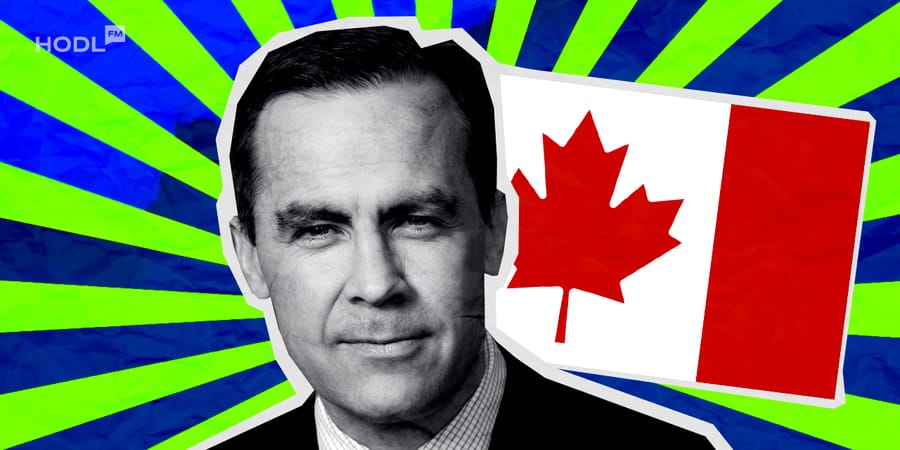If Canada’s Liberal Party wins the 2025 federal elections, the country may take a more cautious and centralized approach to crypto than its southern neighbor. Mark Carney — former central banker and now Liberal Prime Minister-designate — brings a well-documented skepticism toward cryptocurrencies, even as he embraces other emerging technologies like AI and digital infrastructure.
Carney’s Crypto Record - Cautious, Critical, Centralized
Carney, who succeeded Justin Trudeau as party leader, has a long history of scrutinizing crypto. In a 2018 speech as Governor of the Bank of England, he questioned Bitcoin’s ability to function as a true currency. He argued that Bitcoin fails the classic monetary tests: it’s an unreliable store of value, unstable as a medium of exchange, and ineffective as a unit of account.
“The short answer is they are failing,” Carney said bluntly when addressing whether cryptocurrencies could fulfill the role of money.
He doubled down in a 2021 lecture, warning that unregulated private stablecoins could fragment the financial system and undermine monetary policy. His solution? A retail central bank digital currency (CBDC) — a government-issued alternative to decentralized digital money.
Carney has long supported the development of a CBDC with API access for regulated private firms, which he believes could avoid financial fragmentation and enhance settlement systems — but such views often run counter to crypto purists who prioritize decentralization and privacy.
Crypto Regulation, Not Rejection
While critical, Carney is not an outright crypto opponent. In various public remarks, including a 2018 Bloomberg interview, he emphasized the need to regulate digital assets, not eliminate them. Carney warned of widespread misconduct and manipulation in crypto markets and argued that regulation would bring legitimacy to the space.
“The best of the cryptocurrencies will gravitate to the best of the exchanges if they’re regulated,” he said. He also added that it would be acceptable — and perhaps beneficial — if some projects were weeded out through regulatory scrutiny.
Still, he stressed that policymakers must not stifle innovation. Carney acknowledged the promise of blockchain and decentralized technologies in improving payment systems and financial infrastructure. His broader platform for 2025 includes supporting Canada’s role in “AI, tech, and digital industries,” aiming to modernize public services with machine learning and automation.
A Different Path Than the U.S.
Carney’s return to politics comes amid rising trade tensions with the United States. Trump’s renewed tariffs on Canadian imports have already shaken economic confidence, and Carney’s stance on crypto may take a backseat to his response to U.S. protectionism. His policy platform will likely focus more on economic resilience and digital competitiveness than on pushing Canada into a full-scale crypto race.
Facing a Pro-Crypto Rival - Pierre Poilievre
Carney’s chief opponent in the 2025 elections is Conservative Party leader Pierre Poilievre — a vocal crypto advocate. Poilievre has previously pledged to make Canada a blockchain hub, reduce financial system costs, and “give people back control over their money.”
Let people take back control of their money from bankers & politicians.
— Pierre Poilievre (@PierrePoilievre) March 28, 2022
Expand choice, lower costs of financial products, create thousands of jobs.
Get your membership. So you can vote for me as leader. To make Canada the blockchain capital of the world: https://t.co/d9I1ky9w2t pic.twitter.com/qQrJct9gKK
Despite these opposing views, crypto is unlikely to dominate the campaign. As Morva Rohani, executive director of the Canadian Web3 Council, explained:
“Most Canadians are either indifferent or skeptical about crypto. Issues like the affordability crisis, housing, inflation, and immigration are what dominate the political conversation.”
If elected, Mark Carney would likely bring a framework. While not hostile to the underlying technology, his preference for a government-controlled digital currency and strict oversight stands in stark contrast to crypto-libertarian ideals.

Disclaimer: All materials on this site are for informational purposes only. None of the material should be interpreted as investment advice. Please note that despite the nature of much of the material created and hosted on this website, HODL FM is not a financial reference resource and the opinions of authors and other contributors are their own and should not be taken as financial advice. If you require advice of this sort, HODL FM strongly recommends contacting a qualified industry professional.





